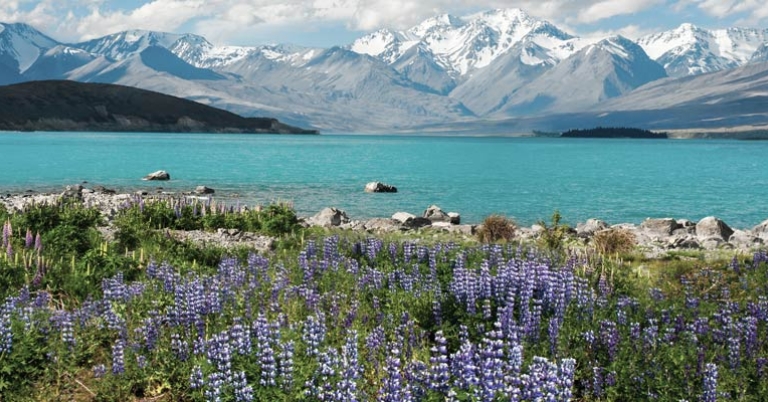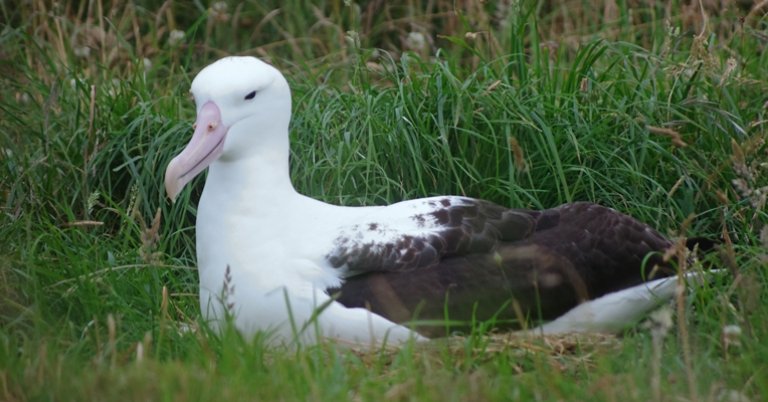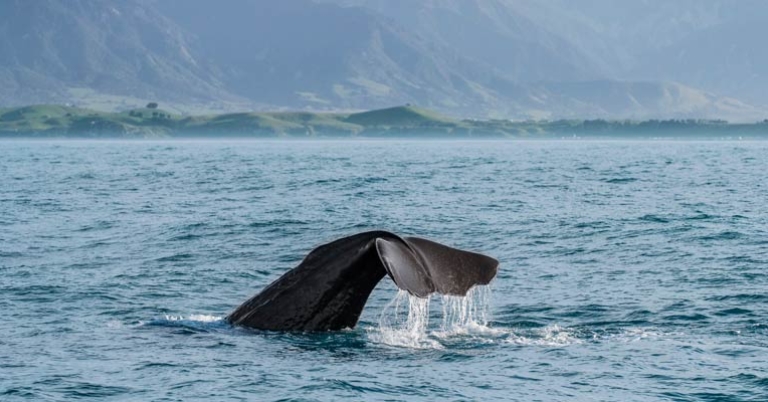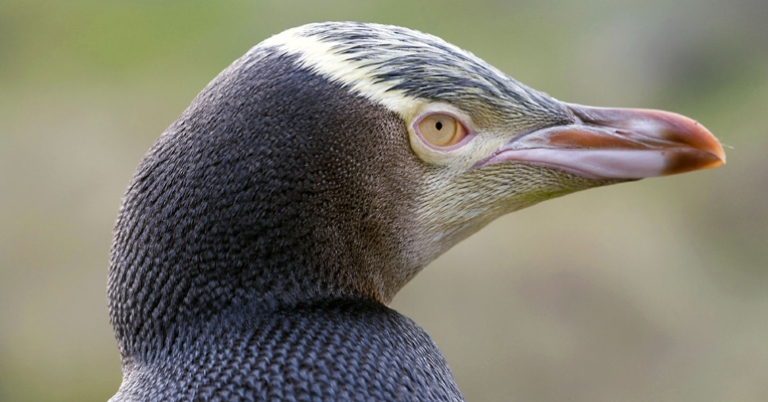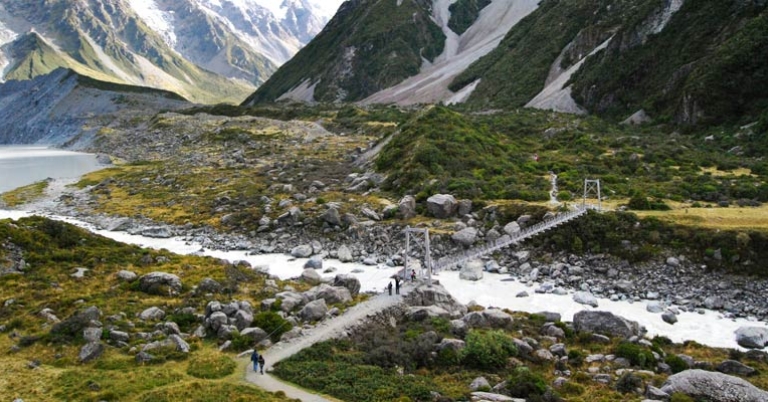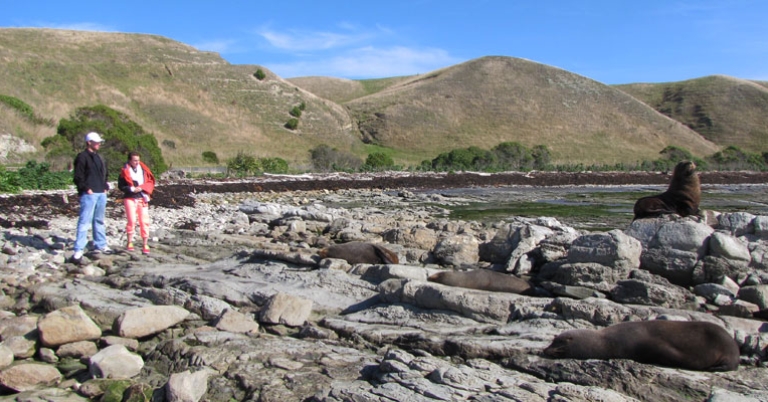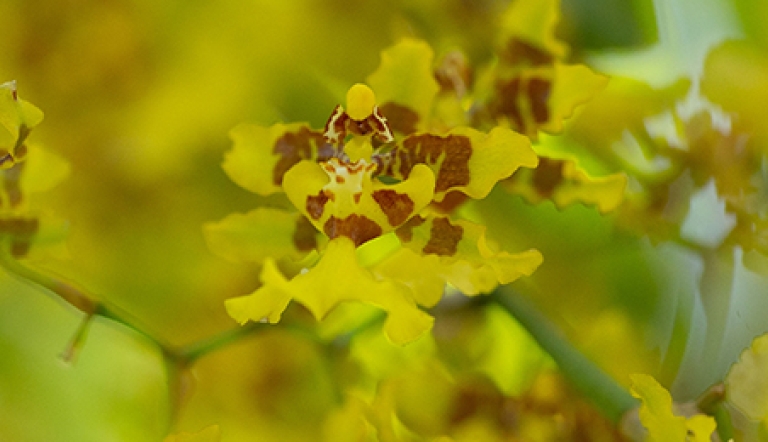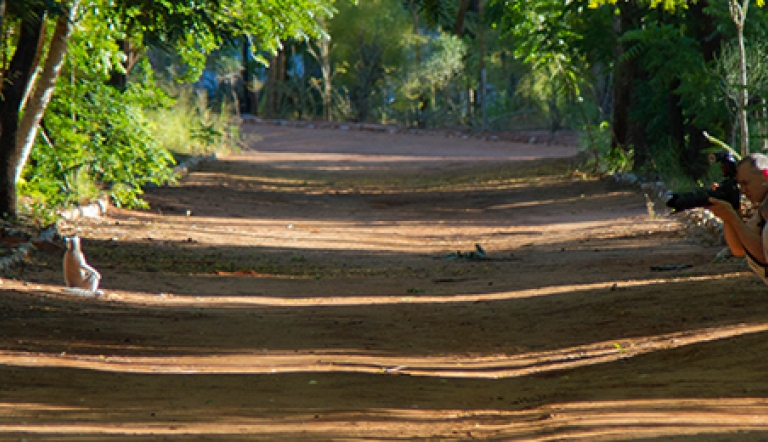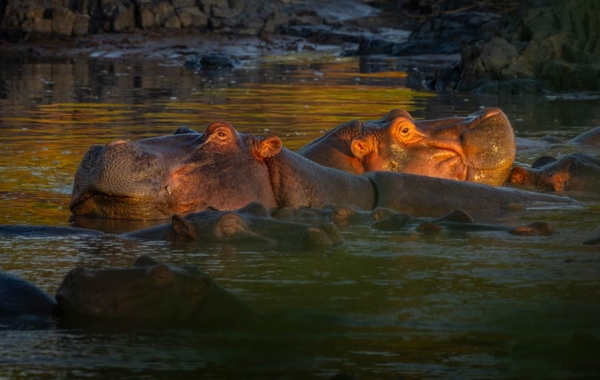New Zealand | South Island Photography Adventure
About this trip
With its awe-inspiring scenery, distinct biodiversity, rich cultural heritage, and inviting community spirit, New Zealand leaves an indelible impression on its visitors. Join Jackie Kramer on this 12-day photography adventure that takes you across the sub-alpine landscapes of the South Island. From the impressive variety of flowers at Wild Dream Garden to the more than 1,000 animals representing over 90 different species at Orana Wildlife Park and the fur seals and sperm whales off the coast of Kaikōura, get to know New Zealand’s endemic plant and animal life and enjoy the ample opportunities to capture them through your lens. Sharpen your photographic skills under expert guidance and return home with an amazing portfolio of colorful images and a new sense of wonder about the country’s unique biodiversity.
BACK-TO-BACK ADVENTURE: Expand your New Zealand photography experience with Jackie Kramer by combining this South Island journey with the North Island Photography Adventure, Oct. 6-16, 2026. Sign up for both trips and receive a $650 discount off each ($1,300 total).
Highlights
- Embark on the iconic ferry ride from Wellington to Picton, regarded as one of the most beautiful boat rides in the world, and cruise amid bush-covered mountains, small islands, crystal-clear waters, and secluded bays.
- Visit the celebrated collections of several public and private gardens, parks, and reserves, including Christchurch Botanical Gardens, Barewood Garden, Flaxmere Garden, Mona Vale Homestead, Broadfield Estate, and Trott's Garden.
- Sample local wines, produce, and olive oil in the vineyards of New Zealand’s famed Marlborough region.
- Marvel at the striking beauty of Aoraki/Mount Cook National Park and learn about the effects of climate change during a glacier cruise through Tasman Lake.
Meet your leader
 Jackie Kramer
Jackie Kramer
Jackie has been photographing the natural world, with an emphasis on flowers and birds since high school. Jackie's work has received international acclaim for her images and has been published in numerous online and print magazines. Jackie's true passion is to encourage people to live their legacy, which she does primarily through her Facebook group, Phlorography - Artistic Floral Photography, with passionate floral photographers from around the world. She is committed to supporting other photographers and using photography as a medium to build relationships and enrich each other’s lives. Jackie leads photography tours to gardens in North America (& elsewhere) and to birding hotspots in Central and South America and also hosts an online academy with classes taught by world renowned photographers.
Website: www.jackiekramerfineart.com/
$7,999
Per person
About this price
Land cost only. Does not include round-trip airfare to and from destination.
Single room supplement $1750
$1300 Discount will be applied if enrolled on both North and South programs.
What makes us different
Rich content
Wildlife up-close
Service anytime
We know what photographers need
Expert guides
Flight arrangements
Daily Itinerary
Print ItineraryDepart US
En Route
Wellington
Blenheim
Kaikoura
Christchurch
Christchurch
Christchurch
Aoraki-Mt. Cook
Queenstown
Queenstown
Depart Queenstown/Arrive US
Pricing
Print Pricing$7,999
Per person
About this price
Land cost only. Does not include round-trip airfare to and from destination.
Single room supplement $1750
$1300 Discount will be applied if enrolled on both North and South programs.
What's Included
What's Not Included
Pricing Details
A deposit of $1000 is required for participants to register and reserve space on the program. Reservations submitted beyond the final payment deadline noted below will require full payment to enroll. For cancellations before April 6, 2026 - $600 Cancellation fee applies. For cancellations between April 7 and May 6, 2026 - $1000 cancellation fee. For cancellations after May 6, 2026 - full land payment costs are not refundable.
Holbrook Travel strongly recommends the purchase of travel protection for medical emergencies while traveling and to protect your investment. Please note the purchase of Cancel for Any Reason Coverage or to exclude pre-existing conditions with Trip Cancellation coverage may require policy purchase within 10-14 days of your initial deposit, depending upon the provider.
Single room supplement $1750
Final payment due date: May 06, 2026
Travel Info
Print Travel InfoEntry & Exit Requirements
U.S. citizens must have a valid passport to enter New Zealand. Passports must have at least one blank page for the entry stamp and must be valid for at least 3 months after your planned date of departure from New Zealand. As this requirement is subject to change at any time without notice, we recommend at least 6 months' validity.
To enter New Zealand, U.S. citizens are required to obtain an Electronic Travel Authorization (NZeTA) prior to departure. Requesting an NZeTA costs NZD $17 through the free mobile app or NZD $23 if applying through the website. Allow up to 72 hours for processing, although many requests will be processed more quickly. To apply, you will need your passport, a credit card or debit card (Visa or MasterCard), an email address, and a photo of your face or a device that can take one. Visit https://nzeta.immigration.govt.nz for more information.
Travelers must also pay the IVL, a levy that funds tourism infrastructure and helps protect the natural environment. The IVL costs NZD $35 and is paid at the same time you request your NZeTA.
If you are not traveling with a U.S. passport, please check with the New Zealand Embassy for the requirements based on your nationality.
Health Information
Please note: Due to the fast-changing nature of travel during the COVID-19 pandemic, the information below does not reflect any current COVID travel requirements for this destination. Please visit the U.S. Department of State or CDC Travelers’ Health webpages or consult your Holbrook travel specialist for the most up-to-date requirements.
Immunizations
The Centers for Disease Control recommends that all travelers be up-to-date on routine vaccinations such as measles-mumps-rubella (MMR) vaccine, diphtheria-pertussis-tetanus vaccine, varicella (chicken pox) vaccine, and your yearly flu shot before every trip.
There are no vaccinations required for entry into New Zealand.
Though not required for entry, the CDC recommends vaccination against hepatitis A and hepatitis B for some travelers.
Please consult the CDC website and your physician for additional information and recommendations based on your individual circumstances.
Insects
The CDC advises that some insects in New Zealand may be capable of spreading disease. The CDC recommends taking normal precautions against insect bites: Cover exposed skin with lightweight, long-sleeved shirts and pants and use an insect repellent containing an active ingredient like DEET or picaridin. Apply sunscreen first, followed by the repellent (preferably 20 minutes later).
After spending time outdoors in grassy or wooded areas, the CDC recommends showering and conducting a full-body check for ticks. If you find a tick attached to your skin, safely remove it as soon as possible.
In wetter areas, particularly in Fiordland, sand flies can be pests but are not known to transmit disease and are effectively controlled by use of an insect repellent.
Sun Exposure
New Zealand's clear, unpolluted atmosphere and relatively low latitudes produce sunlight stronger than much of Europe or North America. The effects of the sun can be damaging to the eyes and skin. Spending time outdoors exposes you to the sun’s harmful ultraviolet (UV) rays, even on cloudy days. To protect yourself from the sun, use a broad spectrum sunscreen of at least SPF 15, protect skin with clothing, wear a wide-brimmed hat and sunglasses, and drink plenty of fluids.
Respiratory Illness Protocols
Please review our Respiratory Illness Protocols page, which explains our policy and procedures if you or another traveler should develop symptoms of a respiratory illness during your trip. Your participation in a Holbrook Travel program indicates that you are in agreement with these protocols.
Resources
Print ResourcesPacking Recommendations
Everyone has personal preferences when it comes to packing; for this reason, the information below is offered as a general guide and not a definitive list. You know yourself best: Use your discretion and pack what you think will serve you, based on your personal preferences and specific itinerary.
You may find many of the items below in the New Headings Gear Store. Use code HolbrookGuest10 for a 10% discount on your purchase.
CLOTHING
Casual, comfortable clothing is suitable for most activities. You may wish to bring a slightly nicer outfit or two if your itinerary includes dinners out or more formal activities.
Remember that New Zealand is in the Southern Hemisphere, and seasons are reversed from those in the Northern Hemisphere.
Bring enough clothing suitable for the length of your program, and pack clothing that can be worn in layers to adapt to weather changes throughout the day. Weather conditions in New Zealand can change rapidly. Be prepared for cold, wet weather at any time of year. If you prefer to pack light, note that many hotels offer laundry services at additional cost or you may hand-wash items.
- A combination of short-sleeved and lightweight, long-sleeved shirts that can be worn in layers
- Shorts/skirts
- A combination of light- and medium-weight pants/trousers
- Undergarments
- Sleepwear
- 1-2 jackets or sweater/sweatshirts
- 1-2 bathing suit(s) for the beach or hot springs, if applicable, plus many hotels have pools
- Socks – Bring extra pairs.
- Shoes – Consider your specific itinerary when choosing footwear. For most programs, you’ll likely want at least one pair of comfortable, closed-toe walking or hiking shoes suitable for forest hikes and walking over uneven terrain. Sturdier hiking boots may be appropriate for more active itineraries. In addition, many participants opt for a pair of sturdy sport-strap sandals (e.g. Keens, Tevas, or similar) and/or casual flip-flops or sandals. If you’re visiting the beach, you may also want a pair of aqua socks, reef walkers, or water shoes.
- Lightweight rain jacket, hooded poncho, and/or windbreaker
- Visor or wide-brimmed sun hat
- Bandana, scarf, or neck gaiter
Personal Toiletries
Pack toiletries based on your personal preferences and habits. Below are just a few recommendations to keep in mind.
- Shampoo, conditioner, lotion, deodorant/antiperspirant, etc. – If possible, avoid strong fragrances if you are sensitive to insect bites (and to be considerate of your fellow travelers).
- Soap and washcloth or a small, quick-drying microfiber towel
- Hairbrush, comb, hair ties, shower cap. Most—but not all—hotel rooms provide a hair dryer, but you may wish to bring one from home.
- Toothbrush and toothpaste
- Razor
- Ear plugs, especially if you are a light sleeper
- Personal hygiene products
- Insect repellent with an active ingredient like DEET or picaridin
- Sunscreen and lip balm with SPF – If you’ll be in the ocean, we recommend reef-safe sunscreen.
- A travel pack of tissues
In addition to your personal toiletries, it is useful to pack a small medical kit, which you can easily prepare. Helpful items might include: bandages, antihistamine, a pain reliever, motion sickness and/or altitude sickness medication (if you are prone to either), anti-diarrhea medicine, individually wrapped pre-moistened towelettes and/or hand sanitizer, antibiotic ointment, anti-fungal cream, moleskin for blisters, eye drops, tweezers, a mini sewing kit, and an extra pair of disposable contact lenses or eyeglasses if you wear them.
Miscellaneous
Remember to pack valuables such as your passport, cash/credit cards, and medications in your carry-on luggage.
- Passport, NZeTA, and photocopies of all travel documentation
- Personal insurance card and travel insurance information
- Money – ATM/credit card, traveler's checks, and/or cash; small bills in good condition are recommended
- Prescription medicines (if applicable), with a copy of the prescription
- Sunglasses with strap
- Small day pack for hikes and excursions
- Flashlight and/or head lamp
- Travel alarm clock or inexpensive waterproof wristwatch with alarm
- A pocket calculator or phone to assist with conversions and currency exchange
- Binoculars with lens cleaner
- Camera and related equipment, such as charger, lenses, and extra memory cards
- Reusable water bottle
- Non-perishable snacks – Please make sure you have NO fresh food in your bag upon arrival in New Zealand. There is an instant fine of $400.00 if food is found. You may bring in dried food provided it is sealed. Please declare this food when you arrive.
- Pocket-knife or multipurpose tool - Pack in your checked luggage.
- Zip-top style bags – useful for packing toiletries, sorting clothing, storing damp or muddy shoes, or as a dry bag for protecting electronics
- Notepad or travel journal and pen
- Music or reading material for down time, long bus drives, or on the airplane, and a portable bright light to read by
- Collapsible walking stick with rubber tip
- A small quantity of laundry detergent if you’ll be washing clothing by hand
- Travel-size umbrella – Some people find this unwieldy to carry, while others find it offers better protection than a rain jacket alone.
- Money belt
- Voltage converter, plug adapter, and chargers for electronics

Questions
Contact Sandy Schmidt at 877-907-5360 or email Sandy.
